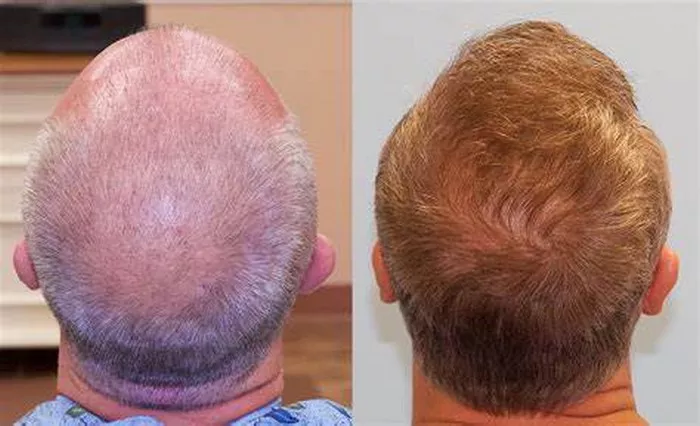Hair loss can be a distressing experience for many individuals. For those seeking a permanent solution, hair transplants have become a popular option. However, as with any medical procedure, there are varying degrees of satisfaction among recipients. This article delves into the factors surrounding hair transplant regret, exploring patient experiences, expert opinions, and the overall effectiveness of the procedure.
Understanding Hair Transplants
What Is a Hair Transplant?
A hair transplant is a surgical procedure that involves relocating hair follicles from one part of the body, typically the back or sides of the head, to areas experiencing thinning or baldness. The two main techniques used are Follicular Unit Transplantation (FUT) and Follicular Unit Extraction (FUE).
How Do Hair Transplants Work?
Consultation: The journey begins with a consultation, where the surgeon assesses the patient’s hair loss and discusses expectations.
Preparation: On the day of the procedure, the scalp is prepared, and local anesthesia is administered.
Extraction: Hair follicles are harvested using either the FUT or FUE technique.
Implantation: The extracted follicles are then meticulously implanted into the balding areas.
Expected Outcomes
Most patients anticipate significant improvements in hair density and aesthetics post-surgery. However, individual results can vary based on factors such as the surgeon’s skill, the patient’s hair type, and adherence to post-operative care.
Factors Contributing to Regret
Unrealistic Expectations
One of the leading causes of regret among hair transplant patients is having unrealistic expectations. Many individuals expect their results to mimic the hair density of their youth, leading to disappointment when outcomes do not meet these ideals.
Surgical Risks and Complications
While hair transplants are generally safe, they carry inherent risks, including:
Infection: Post-operative infections can lead to complications and dissatisfaction.
Scarring: Some patients may experience noticeable scarring, especially with the FUT technique.
Poor Hair Growth: Not all transplanted hair follicles survive the procedure, which can lead to patchy results.
Emotional Impact
The psychological aspects of undergoing a hair transplant can also play a significant role in the overall satisfaction of patients. Those who associate their self-worth with their appearance may find themselves dissatisfied even if the procedure was technically successful.
Real-Life Experiences
Testimonials from Patients
To understand the breadth of patient experiences, we gathered testimonials from individuals who underwent hair transplants:
Positive Experience: Many patients report high satisfaction levels, citing increased confidence and improved appearance.
Mixed Feelings: Some individuals experienced growth but still felt regret due to lingering hair thinning or different aesthetic outcomes.
Negative Outcomes: A smaller segment of patients faced complications or minimal improvement, leading to deep regret over their decision.
Case Studies
John’s Journey: At 35, John decided to undergo a hair transplant after years of thinning hair. Initially ecstatic, he later experienced dissatisfaction due to uneven growth patterns.
Emma’s Transformation: Emma, who underwent the procedure at 28, felt empowered after seeing significant results, reinforcing her decision as a positive one.
Expert Opinions
Surgeons’ Perspectives
Experts in the field often emphasize the importance of patient education. Understanding the process, risks, and realistic outcomes is crucial in minimizing regret.
Surgeon Insights: Many surgeons advocate for thorough pre-operative consultations to set realistic expectations and address any concerns.
Psychological Assessments
Psychologists specializing in body image and cosmetic procedures highlight the emotional aspects of hair loss and subsequent procedures. They suggest counseling or support groups to help patients cope with their feelings post-surgery.
Preventing Regret
Comprehensive Consultations
Before undergoing a hair transplant, potential patients should seek thorough consultations to discuss their goals, expectations, and potential outcomes.
Setting Realistic Goals
Understanding that results can take time and may not fully restore one’s previous hair density can help manage expectations.
Post-Operative Care
Adhering to the surgeon’s post-operative care instructions is essential for maximizing results and minimizing dissatisfaction.
Alternatives to Hair Transplants
For individuals who may be hesitant about surgical options, several alternatives exist:
Medications: Finasteride and minoxidil can help manage hair loss for some individuals.
Hairpieces: Quality wigs and hairpieces can provide a non-invasive solution.
Lifestyle Changes: Stress management, nutrition, and overall wellness can impact hair health.
Conclusion
While many individuals find success and satisfaction through hair transplants, the potential for regret exists. By fostering realistic expectations, ensuring thorough consultations, and considering psychological support, patients can navigate their hair restoration journeys more effectively. Ultimately, understanding the full scope of the procedure can lead to better outcomes and greater satisfaction.
Related topics:
Reclaiming Your Arches: A Full Guide to Restoring Eyebrow Hair
How to Maintain Transplanted Hair: A Detailed Guide
When Can You Get a Hair Transplant? A Comprehensive Guide


